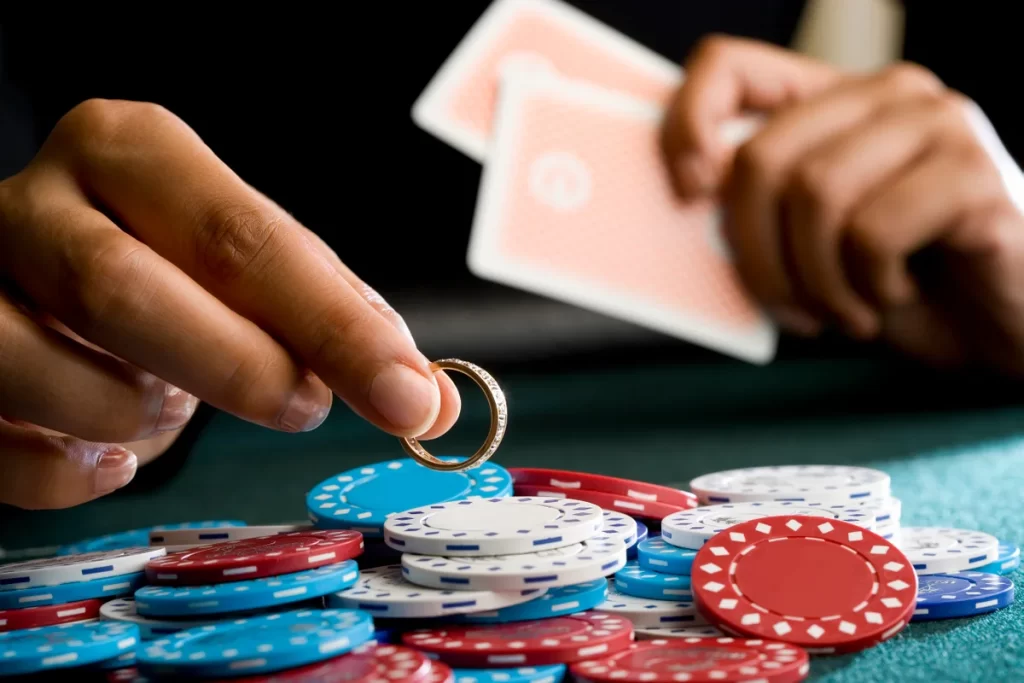Problem gambling can have serious repercussions for an individual’s family, friends and finances. Recognizing warning signs is essential in seeking help for problem gambling issues.
While most gamblers experience no adverse consequences from their hobby, gambling may become an addiction that affects every aspect of their life. Look out for these signs:
1. Loss of control
Most people can gamble without experiencing any negative consequences, but for a small percentage of individuals gambling becomes more than just a recreational pastime and can lead to significant difficulties for themselves and their loved ones. Furthermore, gambling can have long-term repercussions for their health and well-being.
Signs that someone might have a gambling problem include sudden financial strain, such as mounting debt or missing payments; repeatedly seeking loans in order to cover bills they owe; restricting themselves to only eating junk foods or dining out for unexplained reasons; and failing to meet basic physical needs like sleep.
If you suspect someone in your family or circle has an addictive gambling problem, it’s essential that they be approached gently and with love and concern. Expressing your concerns in a nonjudgmental way will prevent them from becoming defensive or shutting down in response.
2. Decreased self-esteem
Gambling can lead to numerous psychological and physical ramifications, including debt, relationship distress and suicide risk. If someone you know is experiencing these difficulties due to gambling, it’s essential that they receive assistance – no matter who or where it may come from. If this applies to them, please reach out immediately so help can be made available.
Gamblers with gambling disorders tend to feel low self-esteem. Social isolation may contribute to this behavior and use gambling as an escape route from feelings of loneliness. Therefore, it is crucial that these individuals learn other methods for improving their self-esteem than gambling alone.
If a friend or loved one frequently turns to gambling as an escape route from problems or negative emotions, hides money from those they owe, lies about gambling activities, steals possessions and money or fails to fulfill family and job responsibilities, they may be suffering from problem gambling. It is essential that any such issue be raised without judgment in an nonjudgmental and supportive manner with encouragement for treatment options being pursued.
3. Anxiety and depression
While recreational gambling may provide entertainment without causing significant harm or distress, problem gambling can create financial issues, relationship strain and emotional turmoil – as well as illegal acts such as theft and lying.
If you believe someone close to you may be suffering from gambling disorder, it is essential that they hear about your concerns in a private and nonjudgmental setting.
Be sure to discuss the negative consequences of problem gambling, including loss of time spent pursuing other interests, increased stress levels, altered sleep and appetite patterns, depression and other mood disorders. Furthermore, encourage them to seek professional treatment from therapists or counselors specializing in gambling addiction.
4. Financial problems
Gamblers tend to struggle with managing money. They may spend beyond what is affordable and find themselves deep in debt. Their gambling may lead them down the wrong path and even cause them to lose jobs or damage personal relationships; even worse, theft or other illegal acts may fund their addictions.
Family and friends of gamblers may notice they’re spending less time together and engaging in other activities; they may start lying to family and friends about their gambling habit; those with gambling problems can also become predisposed to borrow money or use credit to gamble – potentially leading to financial crises and psychological trauma.
Joining a self-help group for families of problem gamblers may provide invaluable assistance in handling money requests from loved ones and in setting rules regarding using credit and managing household finances.
5. Behavioral changes
Gambling may become harmful to certain individuals’ relationships at work, family life and social sphere. Gamblers may also face severe health problems.
Gambling behavior can cause immense strain in families, particularly young children. Gamblers frequently lie about spending or steal to fuel their addiction; if this seems like it could be happening within your household, discuss it in a private and distraction-free environment with those involved.
Make suggestions that they seek help for their gambling disorder. Cognitive Behavioral Therapy is an effective form of psychotherapy which can teach patients how to modify harmful thoughts, behaviors and irrational beliefs related to gambling. Medication may also help as many gambling disorders co-occur with mental health conditions; taking antidepressants or mood stabilizers may reduce urges to gamble.


